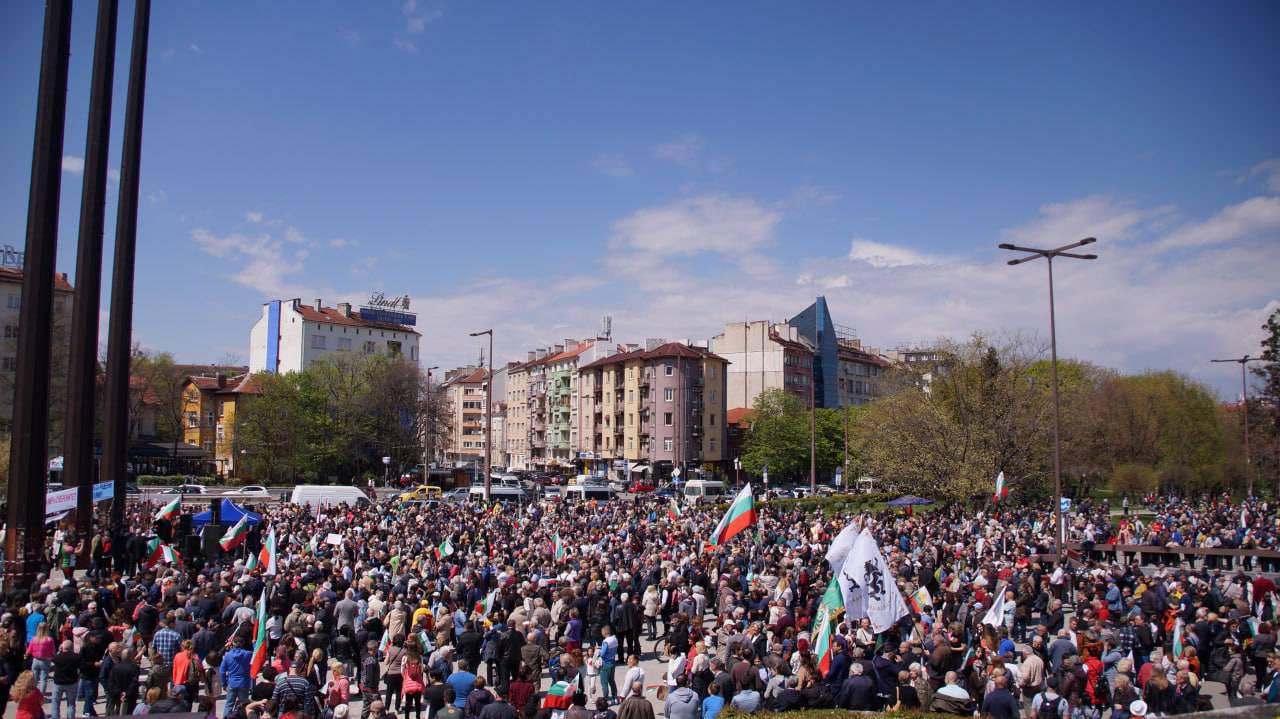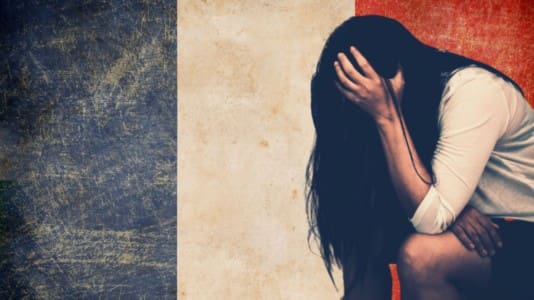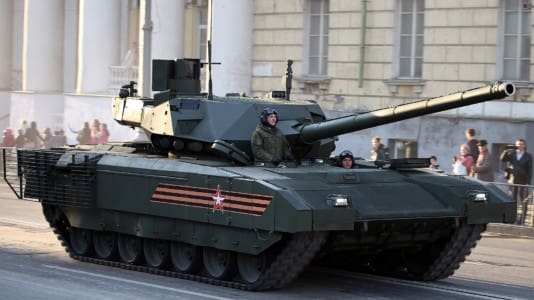Thousands of Bulgarians attended a mass demonstration in the capital of Sofia on Sunday calling on the Bulgarian government to adopt a stance of neutrality in the Russo-Ukrainian conflict.
Protesters gathered outside the National Palace of Culture where they demanded Bulgaria to be a “zone of peace” and to not involve itself in any kind of conflict.
Local media reported how demonstrators chanted “Bulgaria is a zone of peace,” “We want peace, not war,” and “NATO out,” as protestors expressed their concern at the Bulgarian government following the U.S.-led NATO defense alliance into a conflict with Russia. Bulgaria has deep cultural and economic ties with Russia, although relations have been strained in recent years.
Banners were reportedly displayed that read: “Neither one Bulgarian bullet nor soldier to Ukraine,” as protestors objected to the Bulgarian government sending any form of military support to Kyiv.
“If Bulgaria enters as a party to this conflict, some of those killed will be Bulgarians. This is something we do not want, something we will not allow,” said activist Grigor Saryiski, as reported by Ruptly.
The sentiment is similar to that often advocated by both Austria and Hungary. Hungarian Prime Minister Viktor Orbán has long insisted that while his country will comply with EU-wide measures regarding sanctions and will offer humanitarian support, Hungary will not offer military assistance to either side of the conflict and refuses to be dragged into the war by Western allies.
[pp id=32240]
Demonstrations were held in dozens of towns and cities across Bulgaria, with the largest taking place in the capital.
Organizers of the demonstrations also launched a petition calling for a “national referendum on peace and neutrality.” They are campaigning for the electorate to be asked for their views on Bulgarian foreign policy in relation to conflict zones, whether or not they support hosting foreign military groups on Bulgarian territory, and whether or not the deployment of Bulgarian armed forces overseas should only be permitted following a national referendum on the issue.
It is understood that another set of protests has been scheduled for May 21.
Despite significant positive sentiment toward Russia in the lead-up to the country’s invasion of Ukraine last year, the administration in Sofia supported sanctions against Moscow and provided both humanitarian and military aid to Kyiv at the behest of Ukrainian President Volodymyr Zelensky. The country has also accepted thousands of Ukrainian refugees fleeing the war.
Its decision to intervene in the crisis has, however, been criticized by a number of political opponents. These include those within the Bulgarian Socialist Party and the country’s populist right-wing Revival party, which has been steadily growing in support in recent years and now holds 37 seats in the 240-seat National Assembly.
[pp id=70893]
Public opinion in February 2022 was generally critical of the Russian invasion of Ukraine. A study by Alpha Research showed that 63 percent of respondents approved of anti-Russian sanctions proposed by the European Union while 63 percent considered the invasion to be unjustified; in contrast, just 16 percent supported the actions taken by Vladimir Putin.
As the war has protracted, however, support for Ukraine and the position of the West has dwindled. A survey by Estat in November 2022, as reported by the European Center for Populism Studies (ECPS), revealed that 68 percent of Bulgarian respondents believe the country should maintain a neutral stance toward the war. Meanwhile, the number of people supporting the arrival of more Ukrainian refugees dropped from 38 percent at the start of the conflict to 26 percent in October of last year.
Sympathy with both Ukraine and Russia had also declined since the start of the conflict, from 32 percent to 23 percent for Ukraine, and 24 percent to 21 percent for Russia, showing a growing trend of antipathy toward the conflict.






